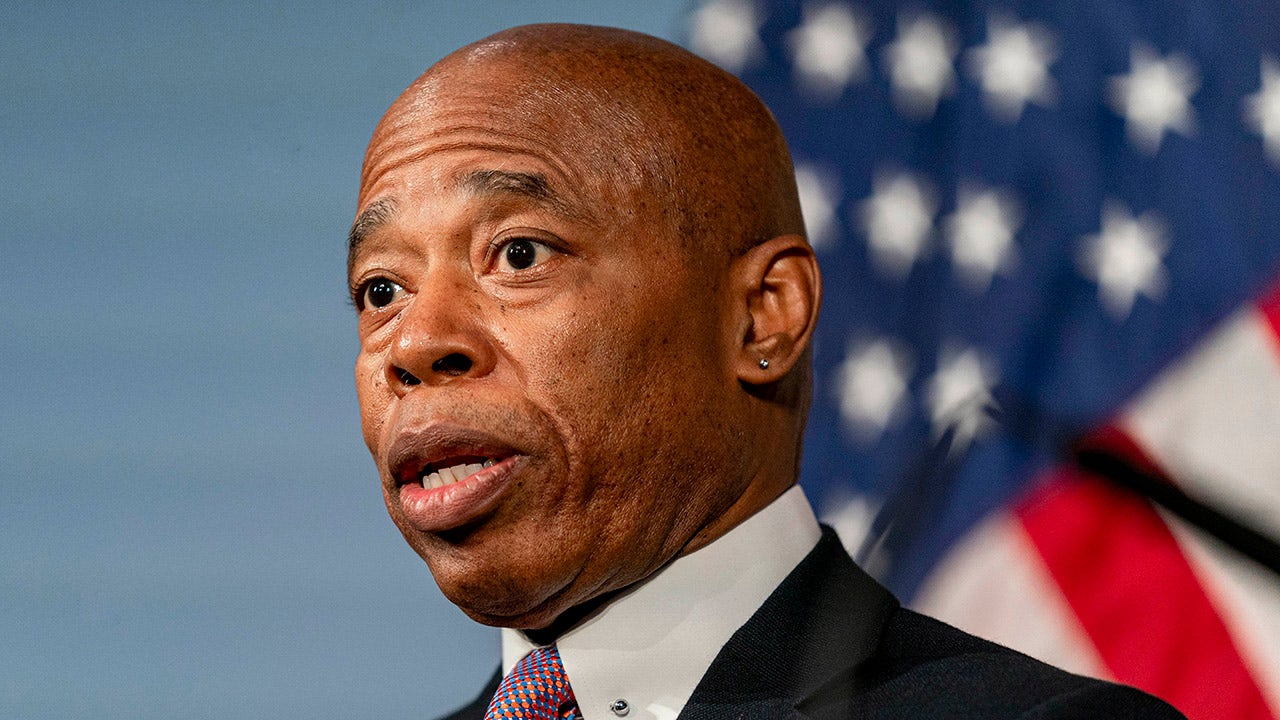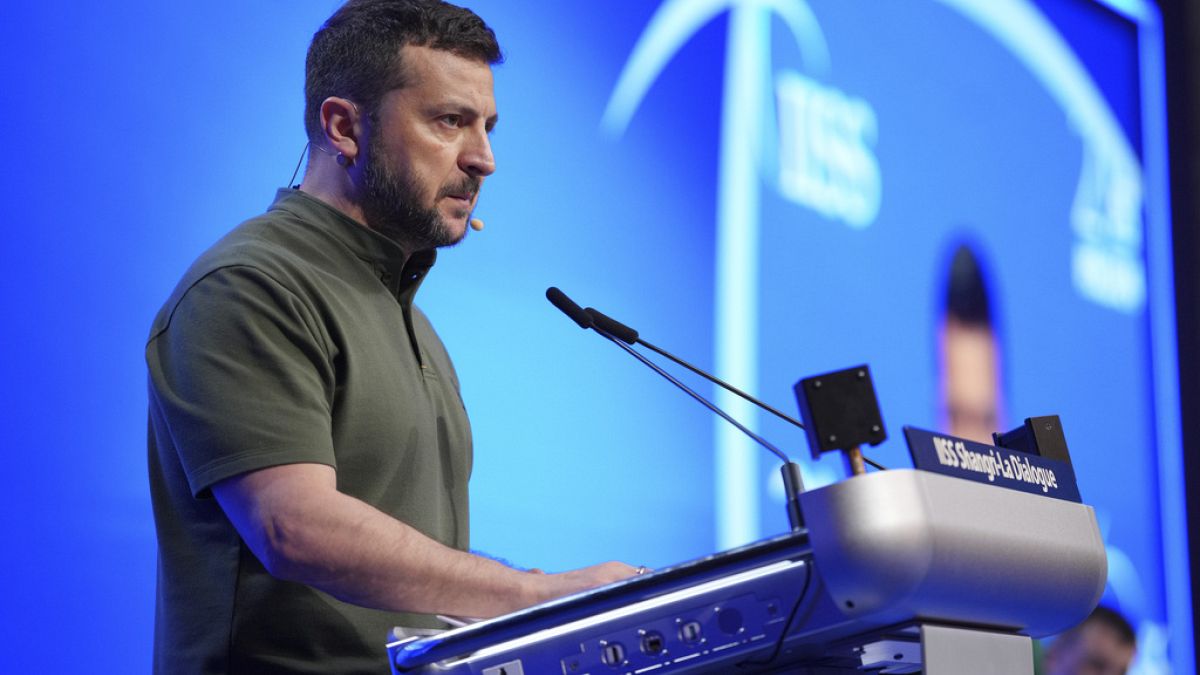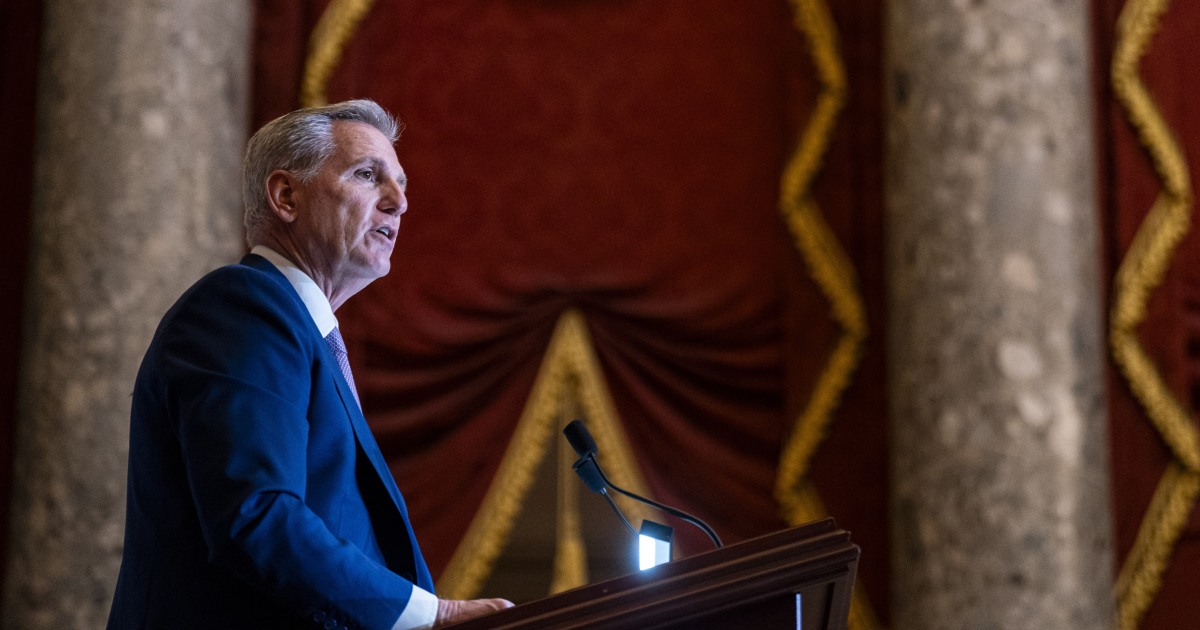Nevada
Historic Sparks railroad building serves as the backdrop for new TV series

SPARKS, Nev. (KOLO) – After six months in the works, a new dystopian drama is coming to a major streaming platform. The best part? It’s being filmed at the oldest building in Sparks, Nevada.
Alissa Knight, alongside her wife Melissa, serves as the director and executive producer of a new TV series called ‘Shadow Unit.’ The series centers around protagonist Isabella Kane, a former head of a notorious ransomware group. Kane finds herself forced into a bargain with the FBI. Trapped in a high-stakes game of cyber warfare and redemption, she leads a team of misfit ex-hackers on a mission to dismantle the world’s most dangerous cyber crime syndicates, while uncovering corruption within the very agency she’s forced to serve. It sounds like fantasy but the series is actually based off Alissa’s life. Melissa, who’s a co-writer on the show, says being so close to this story actually makes the writing easier.
“Alissa and I truly believe on making things pretty real versus things you’ve seen in other shows that are fluffy, so to speak. So, I like that we are putting our practitioner hat on and writing it into the script,” Melissa said.
The crew for this production consists of 23 people including some locals like Sparks native, Andrew Arguello, who actually scouted the historic machine shop building himself.
“This location came to my radar thanks to Donald Abbott who’s a councilman here in Sparks. He posted on Facebook about this location and how they were tearing it down. I reached out to tell him it was perfect for a crime drama series that I was filming. We toured it, obviously it was stunning, and had such rich history that obviously it was a no brainer to film here,” Arguello said.
When Alissa saw it, she couldn’t have agreed more.
“There’s a lot of production value here. You just cant make stuff like this in virtual production,” said Alissa.
You may recall previous reporting KOLO has done about the 120-year-old building being in danger of getting torn down. The production crew hopes that their series can build renewed interest in saving a piece of history.
“Us Nevadans, we care deeply for it,” said Arguello.
Copyright 2024 KOLO. All rights reserved.

Nevada
Neighboring Arizona makes gains on Nevada sports-betting business
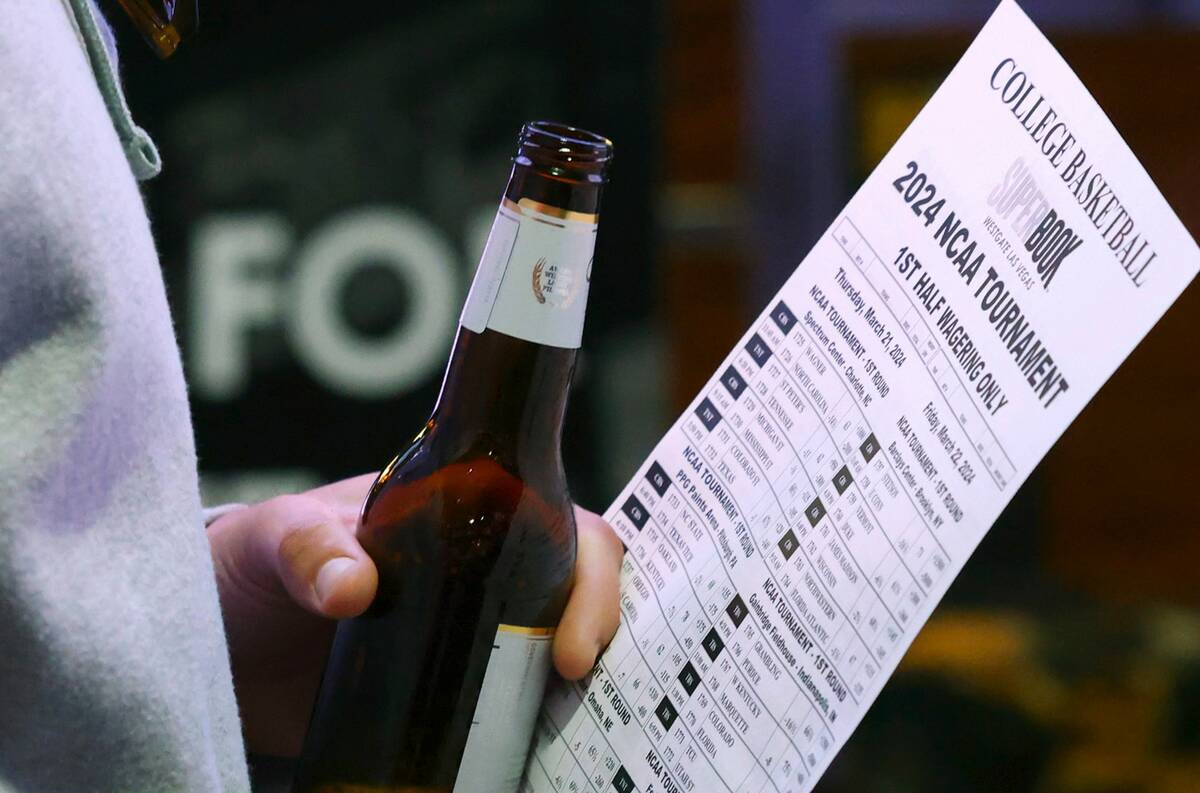
Arizona, Nevada’s closest geographic competitor for legal sports wagering, may be gunning for the Silver State after a record sports handle was recorded there in March.
Buoyed by hosting the NCAA Tournament’s Final Four this year, the Arizona Department of Gaming reported last week that the state’s 16 vendors took $760 million in wagers, an all-time high for the state, which has had legal sports betting only since September 2021. That total was up 17.8 percent from March 2023.
Nevada, which is no slouch for March Madness betting, took $784.4 million in wagers at 180 licensed sportsbooks, down 5.5 percent from a year ago.
Another key difference between Nevada and Arizona is that around two-thirds of sports bets in Nevada are made through mobile apps. In Arizona, almost all the action is taken through apps.
Chris Altruda, a sports wagering expert who formerly wrote for ESPN and The Associated Press, monitors sports wagering among the states that have legalized sports betting for
SportsHandle.com.
Although Arizona doesn’t break down wagering by event, Altruda is convinced that having the Final Four at State Farm Stadium in Glendale boosted interest in betting within the state. It also didn’t hurt that the University of Arizona was in the tournament as a No. 2 seed. It lost to Clemson in the Sweet 16.
“Though the Arizona Department of Gaming does not break out handle figures by sport-specific categories, it is evident that Phoenix serving as host of the Final Four gave plenty of sportsbooks a heightened bounce when it came to March action,” Altruda said in recent commentary about Arizona numbers.
Hosting big events
Hosting a major event can boost sports betting numbers. Nevada noticed that with record Super Bowl wagering in February when the game was played at Allegiant Stadium. The Final Four will come to Allegiant in 2029.
Altruda noted that FanDuel — a vendor in Arizona that isn’t licensed in Nevada — set a state record for handle at $265.1 million. Its biggest rival, DraftKings, which also isn’t licensed in Nevada, wasn’t far behind with its own monthly best of $255.3 million.
Nevada does not break out handle or revenue by vendor.
“March also showed just how important mobile sports betting is to Arizona as its record handle was within $25.5 million of Nevada, where Las Vegas serves as a bucket-list destination for sports bettors who are also big fans of college basketball and the NCAA Tournament,” Altruda said.
“Arizona’s mobile handle accounted for 99 percent of the total handle compared to 64.6 percent in Nevada, and shows the Grand Canyon State’s 16 digital operators — regardless of market share penetration — are doing the right things needed to attract and retain business through both promotional offers and customer satisfaction.”
It would be interesting if FanDuel or DraftKings ever sought licensing in Nevada because they have national recognition, often offer promotional discounts to new players and offer fantasy sports games. But it isn’t likely they would venture into the state because of state policies requiring in-person verification of identification when first registering for wagering apps. Nevada companies have resisted allowing remote registration popular in most U.S. states that allow sports betting.
Change in policy?
After seeing last week’s April Nevada gaming win numbers, which included a decline in sports wagering, Altruda believes Nevada may need to re-examine its in-person registration policy.
“With Nevada still requiring in-person registration to gain access to mobile sports betting apps since the Las Vegas Strip is a gambling destination beyond sports wagering, it feels like the Silver State is quickly reaching a day of reckoning where this requirement may need to be waived,” he said. “Simply put, there are not enough in-person sporting events being held in Las Vegas and the state that will help stimulate substantial retail handle — this in turn puts pressure on sportsbooks to match year-over-year revenue totals with less action.”
Altruda said the jury is still out on how much Arizona can gain on Nevada’s sports wagering territory.
“It remains to be seen if Arizona can stay within shouting distance of Nevada when the NFL season rolls around this fall since pro football continues to be the primary mover of sports betting handle in the U.S.,” he said. “But in less than three years since launch, Arizona has positioned itself nicely to have the opportunity to challenge the original champion of legal sports wagering in this country for handle bragging rights at that time of year.”
Altruda has compiled a Top 10 list of states by sports betting handle, and Arizona has climbed into eighth place, well behind No. 3 Nevada.
Nevada has taken $40.1 billion in sports bets all time through March.
Leading the pack is New Jersey, $50.87 billion (through April), followed by New York, $43.42 billion (through April). New Jersey benefits from being in business for decades while New York capitalizes on its high-volume population.
Behind Nevada are Illinois, Pennsylvania, Colorado, Indiana, Arizona, Michigan and Virginia.
Evolution continuing
The sports betting landscape continues to evolve since the U.S. Supreme Court lifted the ban on states taking sports bets with its decision on the Professional and Amateur Sports Protection Act in 2018.
It’s unclear whether Nevada would ever lift its in-person registration requirement, a move that would need legislative action.
And meanwhile, sports betting remains a clouded issue in neighboring California, which could become the nation’s largest market if sports wagering is ever legalized there.
If that happens, all bets are off on where Nevada will rank nationally.
Contact Richard N. Velotta at rvelotta@reviewjournal.com or 702-477-3893. Follow @RickVelotta on X.
Nevada
COMMENTARY: Too many obstacles hinder education advancement in Southern Nevada

More than 100 days have passed since my final board meeting as the superintendent of the Clark County School District. This time has given me the opportunity to reflect on the state of education in Nevada.
It’s crucial for families to understand the obstacles our school system faces in serving our children. I was brought on board in 2018 with a clear mission: to elevate the educational experiences and outcomes for our students. I was hopeful, encouraged and up for the challenge. Despite efforts by me and the team, however, we encountered significant resistance from various groups that hindered our progress.
Many interested parties — including the teachers union, administrators union, some community leaders, local elected officials and some members of the School Board — often prioritized personal interests over the necessary reforms that could have propelled our students forward. This resistance has contributed to the persistent challenges in student outcomes, keeping Nevada behind in national educational rankings.
In my previous roles in Massachusetts and Florida, I was part of high-functioning teams that implemented successful reforms and improved the lives of students. I came to Nevada hoping to replicate those successes. Here, the potential for improvement is vast due to the state’s size and the capabilities of our students, and we were poised to capitalize on this limitless potential.
The core issue does not involve the structure of our school district or the process of selecting a superintendent. The real challenge lies in the lack of a unified, unwavering commitment to student success at all levels of leadership, both state and local, and how the system is manipulated by special interests.
We need to look to other successful models such as the District of Columbia, Tennessee, Texas, Massachusetts and the Florida A+ Plan, which former Gov. Brian Sandoval considered for inspiration. Unfortunately, political obstacles — particularly from figures financially backed by the Clark County Education Association, such as Assembly Speaker Steve Yeager and Senate Majority Leader Nicole Cannizzaro — have stifled similar initiatives here. It’s critical to understand that, while teachers unions play a vital role, their focus must be aligned with clearly articulated student achievement and accountability, not merely their own interests.
Examples from other states show us that with a dedicated commitment to reform, it’s possible to leap from the lower echelons to top national rankings within a decade. These states prioritized early literacy, empowered parental choice and implemented stringent accountability measures for student progression and graduation, alongside substantial funding.
To achieve similar results, we must enforce a rigorous accountability framework for teachers, administrators and students, while expanding parental choice and offering financial incentives for educators. Gov. Joe Lombardo’s recent historic funding for education is a significant step forward, but it must be accompanied by a firm commitment to these proven principles.
Each and every student in Clark County, including our own children, deserve educational choices just as much as others across the country do. It has been a successful model for increasing engagement, raising graduation rates and developing a healthy workforce. Let’s not allow power struggles overshadow our duty to them. We must rally behind initiatives that place the success of our children first and elect leaders who will support these efforts in partnership with Gov. Lombardo.
Together, we can transform our educational landscape and ensure our children’s future is bright.
Jesus F. Jara is the former superintendent of the Clark County School District.
Nevada
Meet Tera Anderson, Mayoral Candidate for the City of Las Vegas – Nevada Globe

Meet Tera Anderson, mayoral candidate for the City of Las Vegas and a second-generation Nevadan who is no stranger to working with the city on infrastructure projects. Yet, she is a stranger to running for office in that this is the first time she has appeared around the City of Las Vegas as a candidate.
When asked why she is running, she replied, “Because I love this city. I grew up here. I am a second-generation Nevada in the City of Las Vegas. I have worked within the city on infrastructure projects and I am the only person in this race who has the experience and expertise to tackle the challenges the city faces and who has the knowledge to do what needs to be done to ensure that the City of Las Vegas thrives. But, more specifically, this race is about producing actual, tangible results beyond aspirational, political talking points.”
Anderson’s confident pitch extended into detailed observations and solutions that stem from her experience of working inside and outside of city government. If you hadn’t heard much about Anderson’s candidacy until now, it might be due to the debate parameters set by some in the media, requiring her to raise $500,000 to be considered for the debate stage, and have a minimum percentage in the polls. Yet, with two of her competitors polling in single digits, and the leading candidate polling at only 16 percent, a majority of voters remain undecided.
Anderson is certainly not undecided on why she should earn the trust and the vote of the residents to elect her as their next mayor.
What is your your background in city government and your educational, professional experience?
I have been in land development, real estate development, economic development for the better part of 20 years in various capacities.
I currently serve as Vice President of a privately-held industrial commercial developer. As a part of my career, I was recruited by the City of Las Vegas and the City of North Las Vegas to help with infrastructure planning and business development, and to try to help make municipal governance, by way of process, more modern and conducive to the modern economy. We have outdated municipal ordinances that suffocate new innovative business and industry. So, it’s important that government procedure, rules, and municipal ordinances evolve in ways that allow cities to court the kind of development, business attraction, and employment opportunities that are relevant to the modern economy.
I never thought I would ever end up in the public sector. But, I can say my work with the cities was the most rewarding time in my career because you’re building cities. And, when you do it intentionally and deliberately, and in ways that are a value-add to the community, you enhance the quality of life people who live there. That to me is a worthy pursuit, but it also shows how vulnerable the community can be if the elected people making decisions don’t know what they’re doing.
As far as my formal education, I’ve a a bachelor of arts in political science. I have an executive MBA and I’m finishing a Masters in Construction Management.
This is my wheelhouse, but most importantly, the public sector doesn’t oftentimes have very nice things to say about the private sector, and the private sector doesn’t oftentimes have very nice things to say about the government. It is critical to bridge those conversations in ways where you have intact fundamental rules of engagement by public agencies, where you establish transparency and policy, and a navigable rule of engagement so the private sector can still create, innovate and help communities evolve.
The unique thing about me is that I speak both languages.
Let’s talk about the elephant in the room, the Badlands. The City of Las Vegas and the taxpayers are on the hook for over $250 million due to a State Supreme Court ruling against the city brought by a residential developer. What are your solutions, and why are you the best person to oversee the business of the City of Las Vegas?
The Badlands is a problem for a variety of reasons. The most obvious being the financial implications to the city. Right now, the cumulative cost to the city is $250 million before compound interest and legal fees. With every passing day, this number continues to grow.
Secondly, what many people don’t realize is, this isn’t over. There’s still an additional 100 acres of land that is up for further litigation. So, the financial implications are obvious. But, there’s also the opportunity costs–other social issues, beautification issues, community issues, healthcare issues, homeless issues, infrastructure issues, that are displaced and where value-add investments could have been made. So, this cuts both ways.
Thirdly, and the most egregious, is that this is the epitome of the weaponization of taxpayer dollars.
There was no merit for the city to engage in this fight. The city undermined all of the fundamental ground rules of private property rights and land use. When the city chooses to carry the water for private interests that wanted to fight this developer or impede this developer from building, that was was an overreach by the city government.
In a unanimous verdict, the Supreme Court ruled against the City of Las Vegas. If you read the Supreme Court’s summary decision, it is awful as far as how it frames the behavior of the city…and, it’s not just that they claim that the city did not have standing. It’s inverse condemnation. It’s the equivalence of a “taking.” Rather than just eminent domain-ing the property and outright taking it, the city interfered in every way possible to prevent the developer from moving forward.
There’s a narrative by one candidate in the race, Cedric Crear, who claims he’s protecting the residents. Well, he’s not. There are still legal constraints on the city’s authority and jurisdiction. Yet, Councilman Crear doesn’t seem to understand the Supreme Court’s ruling or the legal constraints.
Crear claims that land use isn’t a right because that could leave the city open to strip clubs being built in neighborhoods. That is fear mongering. And, that is also conflation of the issue. Strip clubs are not a land-use issue. They’re a special-use permit, business licensing issue. Understanding these distinctions are critical when you’re evaluating the tact that the city should take on addressing development applications. After seven years on the council, the distinction between business licensing and land use should be something Councilman Crear understands.
Two of the mayoral candidates, Councilman Crear and Councilwoman Victoria Seaman, are the very people responsible for this mess, yet somehow believe they deserve to be promoted to be the mayor of the City of Las Vegas? In the private sector, when you bankrupt an entity, you don’t get promoted. You get fired.
The other thing that is important and is also neglected, is that this property owner–the developer–is a taxpayer, a resident, a voter, and a constituent. So, to pick winners and losers is not the government’s job. There should be a fundamental set of ground rules that are adhered to so there are win-win outcomes.
What would have been wiser on the part of the city would have been to work with the developer to find a win-win solution for the residents and the developer. It’s residential use adjacent to a residential neighborhood. So, with that, there can be an increase in the setbacks, an increase in the landscape buffers, attempts to preserve the elements that protect privacy, and other elements negotiated to maintain harmony for existing residential properties with the introduction of new residential build.
On public record, I have approached the city several times on the Badlands. I implored the city that if they don’t want private development on this land, then buy the land outright in an open, buyer-seller transaction and make it an open space, a park, or whatever makes harmonious sense.
Was the Badlands the primary issue that compelled you to run?
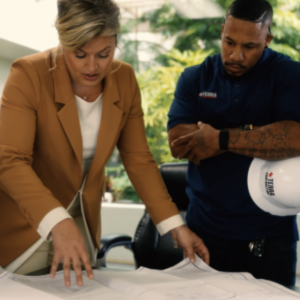
It’s one of several, but, yes, it’s up there. The Badlands is a reflection of the dangers of electing people who are out of their depth, who don’t have a command of the technical details that are important to draw upon when making decisions, and then casting votes on complex issues. The complex issues facing the city cannot be solved if we don’t have the money to solve them.
Is the city going to cut a check for hundreds of millions to the developer, or what are they proposing to do?
I can’t speak to that. There’s rumblings that the city is going to try to appeal or continue to fight, somehow. The problem now for the city and the taxpayers is that the city is not in a position of strength.
To me, the only option is to take the gun out of the developer’s hand and disarm the situation by bringing the developer back to to the city, encouraging them to come back to the city and represent their development plan for approval. This is a part of the public record, so it is transparent. This offer gives the developer the level of confidence they are going to receive good faith, fair dealings from the city.
Then, you have to negotiate.
What is exactly the pound of flesh? That they are going to want out of the city? The unfortunate reality is they have incurred real costs. I don’t know what those are. I’ve never spoken to them. What are those costs that they need to be made whole on? What is acceptable for them from a negotiation? This is where this starts.
Currently, there is no accountability on these council people. It’s the taxpayer’s money that they’ll be entitled to, based on the ruling from the Nevada Supreme Court.
So, the only option is to try to negotiate. But, until you diffuse the situation by approving the development plan and giving them the assurance that the city is no longer going to to stay the course, weaponizing itself by fighting them, there is no other way to reach a settlement agreement.
This is why understanding state government is so important, functionally.
When there is private settlement conference or a negotiation on litigation, you can all arrive to the table, discuss, negotiate, and come to an agreement. You can’t do that privately with public assets.
You can’t induce the city to a decision outside of a public vote. So even if the city says, “Okay, we want to settle with you,” you still have to take that negotiation to public vote.
Until the development plan is approved, there’s no incentive based on the city’s conduct to date for the developers, the owners of that property, to take the city at face value and believe that they’re getting fair, good faith dealings in a settlement negotiation.
It’s not uncommon for developers or substantial property owners to follow local elections. I haven’t spoken with them, but I am sure they know who I am because of my candidacy and my platform on this issue.
I’m not running because I’m carrying the water of the developer. I’m running on principle, because the Badlands is a prime example of exactly how government should not conduct itself.
You need people who have a relevant set of experience and expertise to help extract the city from this problem. I negotiate for a living. I solve these complex land use issues for a living. I read blueprints for a living.
Our existing city council members who are running for mayor have been party to escalating and creating the very problem that the City of Las Vegas taxpayers are facing.
Both of them have had either five or seven years to display their capabilities, and they haven’t done it. They are not equipped to solve the problem.
Victoria Seaman goes on to talk about how she has been interviewed and has stated numerous times on record that she “doesn’t think that this litigation is a valuable use of taxpayer dollars.” That is actually accurate. What she conveniently leaves out is that more than 20 times over five years, she has voted in favor of pursuing the litigation. So where is the strength of conviction to vote according to your what you say is your conscience?
Seaman also espouses to bring bold leadership to the city, but she hasn’t been able to earn the respect of her colleagues on the council in the last five years to effectuate a result in her current capacity. What would lead any member of the community to reasonably believe she will be capable of doing so as mayor?
Now that this ruling has been done, now that they’ve been interviewed multiple times on Channel 8 and with Ralston’s side show called a “debate,” what are they saying their plans are?
They’re not. Neither of them have articulated a specific, tactical plan to extract the city from it.
Crear is saying he would do it again because he is defending the neighbors. He doesn’t even see the wisdom of recognizing that the Nevada Supreme Court has told him he is legally out of bounds.
Taxpayers on hook for massive court losses over Badlands. How will Las Vegas pay? https://t.co/TPoKqgZfbi via @reviewjournal
— Tick Segerblom (@tsegerblom) June 1, 2024
What does candidate Shelly Berkley say about the Badlands? She is currently leading in the polls with 16 percent?
Yes, only 16 percent! Which brings in the media as well. The media does not exist to pick winners and losers. One role of the media is to educate the public. The debates featured only three candidates, two of whom are directly responsible for the Badlands. I tried to get on that debate stage, but was told that polling and fundraising were the metrics by which I would be allowed to publicly challenge my opponents and appeal to the voters. Although I entered the race in October, I quickly raised $200,000, not the $500,000 the press required to be worthy of a microphone. Debates and elections should be a competition of ideas, qualifications, and visions, not a competition of wallet size.
This is the problem. This is why voters are undecided. This is why more and more voters feel as though they aren’t being heard by their government. This is a nonpartisan race, in a general election year. This seat is so important for the future of the city, and yet what was important to the media was money in the bank and awful polling averages. The three chosen to be on the stage polled collectively at about 35 percent. So, if over 60 percent of voters are not supporting them, there is a reason for that.
But to answer your main question, Berkeley has said that she doesn’t agree with Councilman Crear’s position. She touts the fact that she has negotiation experience and that she can negotiate with a developer. Well, that is generic. There are no specifics. She, to my knowledge, has not articulated any specifics on how to unwind this.
Editors note: This interview has been shortened for readability. Part Two of the interview to follow and will cover additional solutions in relation to housing affordability, homelessness, safety and other issues that Andersen covered with The Globe.
-

 News1 week ago
News1 week agoRead the I.C.J. Ruling on Israel’s Rafah Offensive
-

 News1 week ago
News1 week agoVideo: Protesters Take Over U.C.L.A. Building
-

 World1 week ago
World1 week agoHoping to pave pathway to peace, Norway to recognise Palestinian statehood
-

 News1 week ago
News1 week agoLegendary U.S. World War II submarine located 3,000 feet underwater off the Philippines
-

 World1 week ago
World1 week agoFamilies of Uvalde school shooting victims sue Microsoft, Meta and gunmaker
-
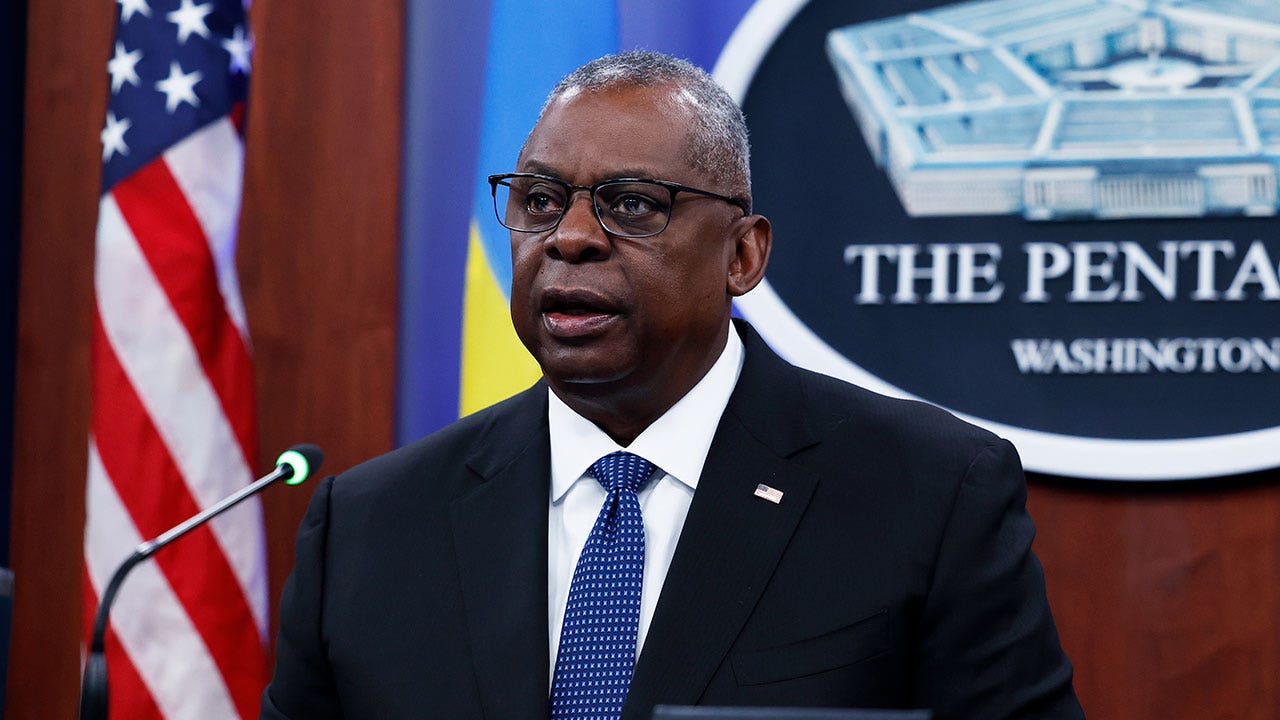
 Politics1 week ago
Politics1 week agoDefense Secretary Lloyd Austin to undergo nonsurgical procedure, Deputy Kathleen Hicks will assume control
-

 Politics1 week ago
Politics1 week agoHunter Biden attends pre-trial hearing in Delaware court on federal gun charges
-

 News1 week ago
News1 week agoHere are three possible outcomes in the Trump hush money trial : Consider This from NPR





/cdn.vox-cdn.com/uploads/chorus_asset/file/25475001/1364429812.jpg)






